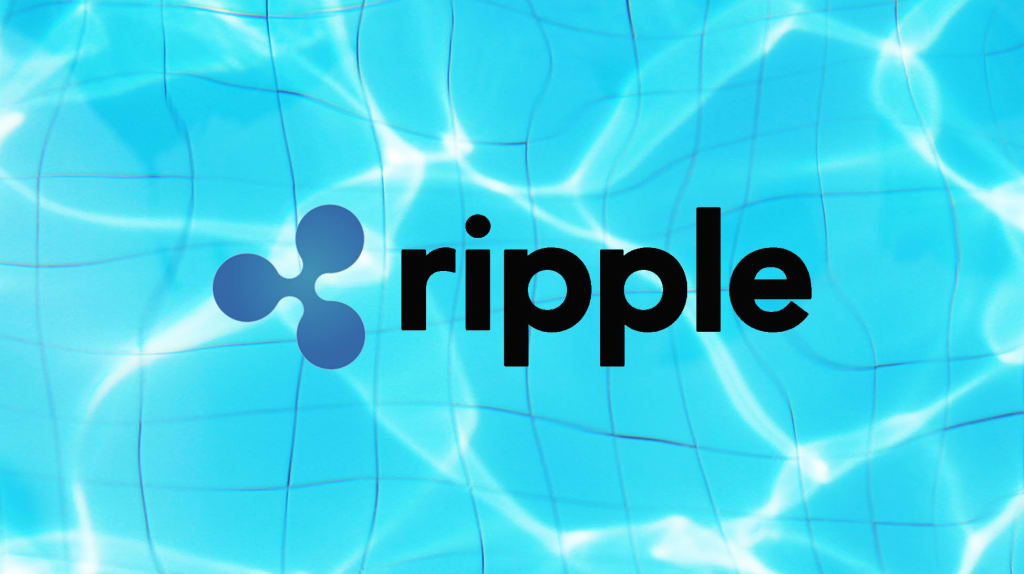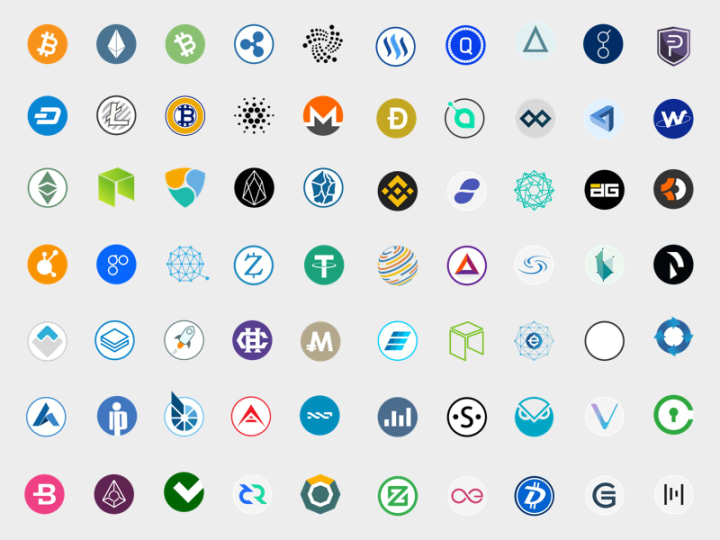10 Ways Ripple Is Different from Other Cryptocurrencies
There are many important reasons why Ripple is different from other cryptocurrencies.

In the age where digital technology has come to operate much of the infrastructure of global communications and commerce, many people are looking to find ways of furthering the role and importance of this progress by digitizing more aspects of life. With many people and institutions becoming skeptical and fearful of the American dollar and other forms of hard currency, the impulse to create new digital forms of currency has been strong. In this new field of exchange, known as cryptocurrency, the money of a system exists and is traded digitally without a physical representation. The most influential forces in the cryptocurrency market include Bitcoin, Ethereum, and Ripple. If you have only heard of Bitcoin, chances are you haven't thought much about this rising industry, as there are ample cryptocurrencies to consider buying over Bitcoin if you already missed out. Though held with skepticism by many, certain countries and financial institutions have begun to recognize certain digital currency, an important step in the development of these systems. While the average person is inclined to think of investing in Bitcoin when thinking of cryptocurrencies, it is important to note that not all fiat currencies and cryptocurrencies are the same, for a variety of reasons. For instance, one of the fastest expanding currency networks is Ripple, which is operated quite differently than Bitcoin, Ethereum, and others in the field. Below are some reasons that Ripple is different from other cryptocurrencies.
Unlike bitcoin, we know who created Ripple.
When a revolutionary concept is introduced, people naturally want to know the person responsible for the innovation to understand their insights and thought processes. In the case of Bitcoin, the creation of the currency is credited to Satoshi Nakamoto, a statement that doesn't seem suspect on first glance. However, further research will show that this is a pseudonym, one that may even apply to more than one person, creating an air of mystery around this already enigmatic invention. In the case of Ripple, creation is attributed to, among other documented people, Ryan Fugger, who created the earliest versions of the Ripple Payment Protocol in 2004. Working in Vancouver, Fugger was trying to "decentralize" currency and allow people to create their own money (though ownership by later parties would come to warp these objectives slightly).
Ripple is faster.

Photo by rawpixel on Unsplash
As previously noted, Ripple's XRP was created with the intent of decentralizing currency exchanges to assure that there was no central power controlling them. If you have ever had to pay extra fees at the bank, or wait for a check to clear, chances are you are familiar, and even fed up with, theses expenses. In looking at cryptocurrencies, one might wish to consider which will process transactions fastest and which will have the fewest transaction fees. While Bitcoin is more established than Ripple, it may surprise you to find that Ripple is faster and cheaper to use. Whereas Bitcoin is procured through a process referred to as mining, requiring "proof-of-work," Ripple uses a verification process involving servers that are polled on the validity. With this rapid process, transactions can be approved at a far quicker (almost in real time) rate than Bitcoin, without incurring as many fees and costs along the way.
Ripple is not "mined."
While the ideas behind these cryptocurrencies are pretty similar, the record keeping process varies greatly. While the amount of money issued by the Treasury is regulated by a central authority with limits and oversight, cryptocurrency seeks to create accountability without central or governmental control of their economies. When Bitcoin is "mined," this means that a "miner" uses software to solve complex mathematical equations in exchange for a particular amount of Bitcoin. Additionally, the Miners are responsible for approving transactions, keeping the network in check, and keeping record of all transactions on the public ledger known as blockchain technology. By automating and streamlining this process, Ripple has allowed such approvals and record keeping to bypass this human element, allowing a greater circulation of their currency while still maintaining a record keeping system to document everything.
The "release" of Bitcoin and Ripple is different.

To review, Bitcoin and Ripple transactions use very different processes to regulate and document commerce with their currencies on the internet. While the Bitcoin network, as discussed prior, uses "miners" to "find" and release Bitcoin by solving equations, Ripple uses a different and more innovative process that allows the currency to run more efficiently, and in a way that more objectively reflects supply and demand (if less decentralized). With Bitcoin's reliance on the human element, it is still subject to many of the flaws and shortcomings of traditional currencies and financial institutions. The Ripple network and payment system has devised a way to avoid many of the hassles that still come with currencies like Bitcoin. Much like their server driven verification process that cuts much of the human inefficiency out of the equation, Ripple uses its system and compiles data to inform a "smart contract." This "smart contract" determines what amount of XRP to release and, when necessary, allows for greater precision than the Bitcoin model.
There is far less Bitcoin (in terms of quantity) than XRP.
In these and other cryptocurrencies, there are certain rules involving supply and amount that are put in place to assure greater stability of these fledgling institutions. In the case of Bitcoin, the company has set a limit of 21 million, meaning that there will never be anymore than 21 million Bitcoins in circulation. According to Coincentral, 16.7 million of these have been issued, leaving only 4.3 million still unreleased. Before going on, I find it critically important to emphasize that all of the millions and billions in this section have been properly placed. Ripple has a total of 100 billion XRP, with 55 billion still undistributed. Ripple keeps 55 billion of the XRP in an escrow account, releasing no more that 1 billion tokens in a month. Anything left over from that billion is returned to the escrow account, all of which is overseen by the aforementioned smart contract. As you can see, Bitcoin and Ripple handle their numbers very differently.
Ripple is more energy efficient.

Photo by Casey Horner on Unsplash
While we often think of energy consumption and efficiency in terms of personal contribution and responsibility, we often fail to see the greater impact that different technological processes and mechanisms have on such considerations. To put it in simple terms, compare a small, four door hatchback with a large pickup truck. The hatchback will likely have front wheel drive, a much lower curb weight, and a four cylinder engine, whereas the pickup will have four wheel drive, an eight cylinder engine, and a great deal of added weight. Based on all of these factors, one can easily conclude that the hatchback will achieve far greater fuel economy. Because Bitcoin relies on a tedious mining process and a great deal of human input, its operations use more energy for a longer period of time to produce the currency. With its smart contracts and other automated features, Ripple can circulate XRP with far less energy consumption. This reason, especially, is why Ripple is a great investment.
Ripple looks to streamline international transactions.
While any financial transaction carries a certain degree of risk and hassle, those that take place between parties in different countries can be especially daunting and costly to settle. In many cases, such transactions require a great deal of research, human communication, and, consequently, greater fees and expenses for all of those involved to wet their beaks. This is largely because a third party is typically needed between the sender and recipient when banks are involved. Many such transactions are completed through a program called SWIFT. Don't let the name fool you though, SWIFT is far less coordinated and advanced than companies like Ripple because it relies heavily on human interaction and accountability, not boasting much digital technology at all. Because Ripple uses a largely computerized system to process their transactions, there is little approval time and little need to spread fees.
Ripple is not just an XRP exchange.

It is important to draw distinction between the Ripple payment network and XRP or Ripples. The Ripple network is an exchange, while XRP (also known as Ripples) are the currency created by the company. While Ripple is associated and affiliated with the XRP coin, there is a deeper explanation of this relationship, one which does not declare the two to be mutually exclusive. While the XRP was generated by Ripple, it is not the XRP that is traded in the network. Rather, the member groups trade in IOU's, such as the banks traditionally do. Because the users in the Ripple network trade in IOU's (more or less debt), the network allows for members to trade in any currency form, certainly not limited to XRP. This principle keeps with the company's objective to streamline the process of financial transactions across international lines.
Ripple isn't as free and open as Bitcoin.
While the largely computerized and consolidated functions of Ripple allow it to serve customers more promptly and with less overhead, this innovation does come with some drawbacks that are important to note. Because of this technology, the power of decision making is given back to Ripple, who can, in turn, cancel or change accounts at will. This central processing becomes necessary with personal information on clients being provided. As such, it behooves the network and members to keep this information out of the reach of the public. However, because of the company's paradoxical lack of central authority, it relies on validation from servers in the network. Further, this lack of central power means that anyone can have a server in the network and that these can all be used as validators, a condition that may well question some legitimacy.
Ripple is a for-profit business.

Photo by Vladimir Solomyani on Unspl.
In a field of companies trying to change the workings of the global economy in revolutionary ways, Ripple is different from other cryptocurrencies in many key ways. In addition to the variations in the technical workings of Ripple, the company, unlike its competitor Ethereum, is not a non-profit. To the contrary, Ripple is aimed at making a considerable amount, creating and distributing "services" to justify their model. Because they intend to profit, they are actually required to provide these, or some other, services under certain financial laws. In addition to their cryptocurrency-based pursuits, Ripple intends to revolutionize the way money is handled in the global economy. Their network is just one of the services they provide for a minuscule XRP fee, in order to expand and sustain themselves as a company.
About the Creator
Fred Eugene Park
Fred Park is a writer, singer and guitarist with a deep passion for music, sports and history. Fred graduated from Purchase College in 2016 with a BA in history.






Comments
There are no comments for this story
Be the first to respond and start the conversation.